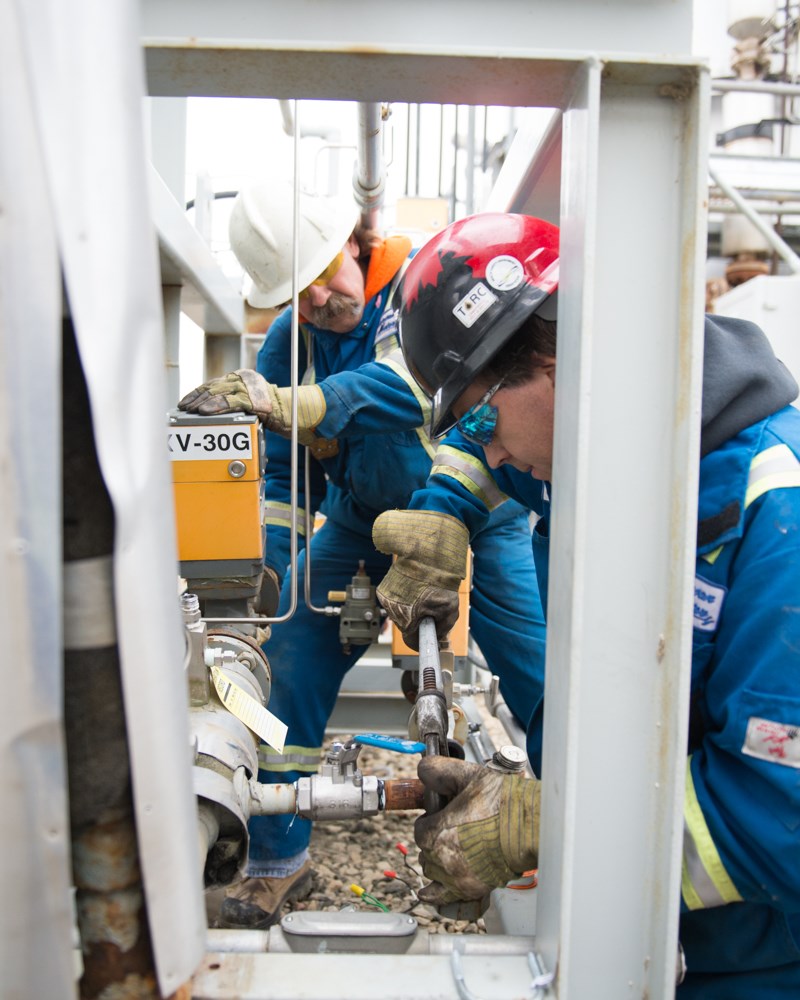Estevan Meter has 35 people working out of Estevan, and a further six working with sister company Virden Meter in Virden, Man.
“We cut back a couple of positions a few have been left unfilled through attrition. Our overall volume is down somewhat. Our profit margins are down significantly,” Doug Martens, Estevan Meter president, said.
“We’re primarily maintenance driven. Construction and distribution of new product is down significantly. Some of the maintenance as decreased slightly as well. Our margins have been hit substantially. We’re hoping to end the year slightly in the black.
The company has been around since 1967. Martens joined in the 1990s and became part of the ownership in 2000. So while the company was around turning the big downturn in 1986 that many in the business have compared the current one to, Martens said, “I wasn’t old enough to care in ’86.”
In a broader context, he said, “I don’t think anyone’s giving consideration for future global demand and global population increase.”
In 1986, there was a substantial over production of oil compared to today.
“Increase in oil production is very proportional to increase in population. We need oil to survive on the planet,” he said “There’s an additional 50 million people on the earth every year, and they all want to drive cars.”
“The U.S. is able to bring on cheap and large volumes in short order. Peak oil – where did that go? It’s a finite resource. Everyone’s looking at how much oil we’re making. But how do you quantify demand?” Martens said.
“We’re now in the information age. In 1986, you had to read the newspaper to get information. It didn’t flow as freely as it does now. I think some of us have difficulty processing that information. There’s just too much of it.
“I don’t think we’re buggy-whip salesmen. There’s a need for our product.”
As for reacting to the shift in the industry, he said, “It’s a balancing act. We need to react to it. It’s important for survival. But you don’t want to overreact. It’s a day-to-day assessment.”
“Right now, it’s full survival mode, and you have to react as quickly as you can, or need to, but at the same time, you don’t want to overreact.”
For Estevan Meter, they are dealing with a seasonal and cyclical business. The last quarter of this year is looking very bleak, but next May there will be seasonal demand again, he noted. The challenge is to retain their skilled workforce.
The company first saw a change when they were forced to give price concessions at the end of 2014. Activity levels started to decline. The summer maintenance season helped, but that’s coming to an end. They’ve reached out to potash mines and power plants, looking to expand their horizons.
“We’re looking for and finding efficiencies,” he said. Some of that comes from software improvements in their invoicing.




